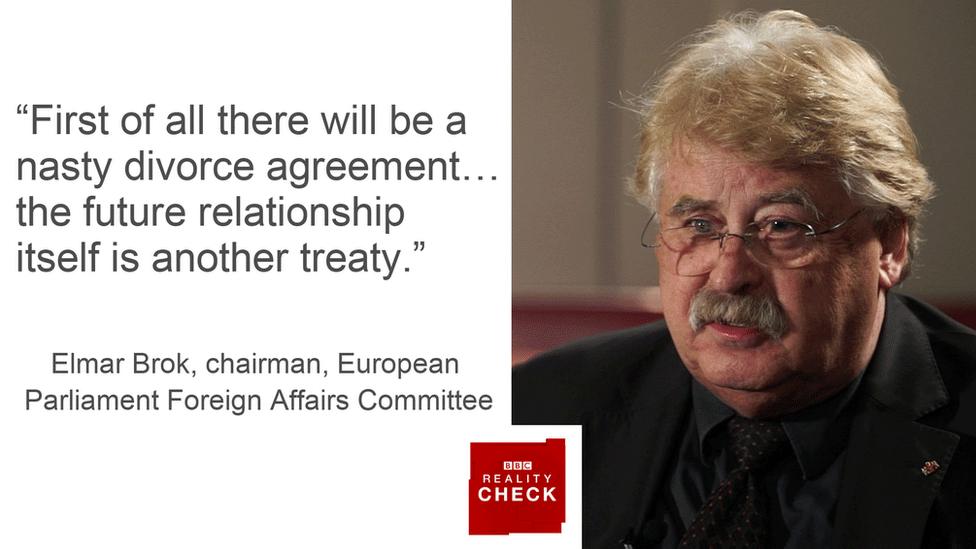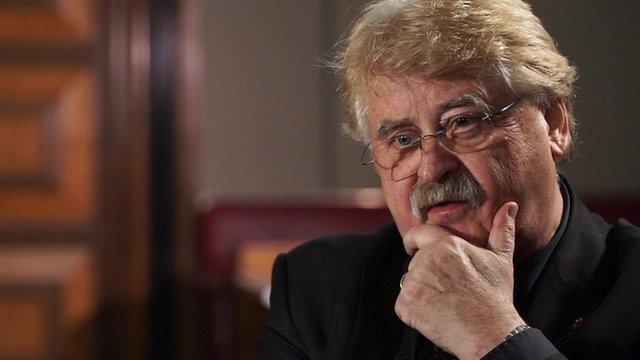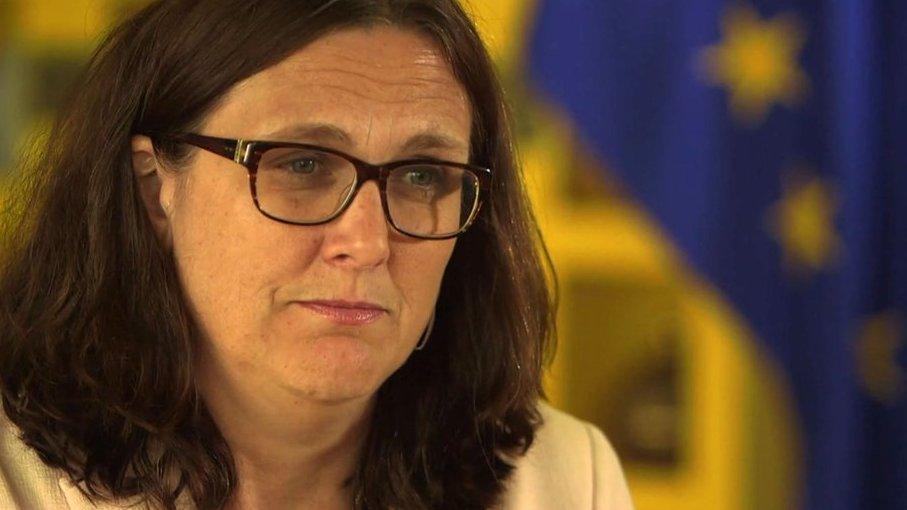Reality Check: Must UK settle EU divorce before it makes trade deals?
- Published

The claim: Elmar Brok, who chairs the European Parliament Foreign Affairs Committee, says the UK will have to negotiate its divorce agreement before its future relationship.
Reality Check verdict: We will not know for sure until after Article 50 has been triggered, but a number of senior European politicians support this two-stage process.
Article 50, under which a member may leave the European Union, does not specify which areas should be covered by a withdrawal agreement.
It had been widely assumed that trade would be a crucial part, but Elmar Brok, who chairs the European Parliament's Committee on Foreign Affairs, has now told the BBC the UK would have to negotiate two separate deals with the EU:
one setting out its withdrawal from the bloc
one that settles a new trade relationship
Mr Brok said the negotiations could be held partly in parallel but the Brexit agreement would have to come first.
Security arrangements
In July 2016, EU trade commissioner Cecilia Malmstrom also said the UK would be able to negotiate a trade deal with the EU only after Article 50 negotiations had been concluded.
If this is the case, Brexit negotiations would be likely to focus on issues such as how much the UK would pay to settle outstanding liabilities, including projects it has already agreed to support and pensions for EU civil servants.
It may also include cross-border security arrangements and relocation of EU agencies headquartered in the UK.
Open Europe has put together a useful list of possible areas, external.
None of this is certain - a European Commission representative told the BBC it would not speculate before Article 50 had been triggered on the specific areas that would be covered in the negotiations.
Once Article 50 has been triggered, Britain's exit from the EU would have to be negotiated within two years, a timeframe that can be extended only by unanimous agreement from the 27 remaining members of the European Council.
Should the UK be unable to reach an agreement with the EU within those two years and should at least one member of the council veto an extension of the negotiations, the UK would automatically exit the EU and all existing agreements, including those involving the single market, would cease to apply to the UK.
'Lengthy negotiations'
Two years is a very short time for a trade agreement to be reached.
And the EU's negotiations with the US (TTIP) and Canada (CETA) suggest reaching a comprehensive trade deal with it is far from straightforward.
The EU's trade agreement with Canada has been under discussion for seven years, although its agreement with South Korea was negotiated and signed within three years.
In addition, unlike the Brexit agreement under Article 50, which needs the approval of only a reinforced qualified majority (at least 72% of the members of the council representing member states comprising at least 65% of the population of the EU) a new trade deal between the UK and the EU would also have to be ratified, meaning it could be vetoed by any of the remaining 27 EU member states.
In Parliament on Wednesday, Prime Minister Theresa May said: "There's going to be lengthy negotiations over the course of those two years and more."



- Published18 October 2016

- Published30 June 2016

- Published20 June 2016
